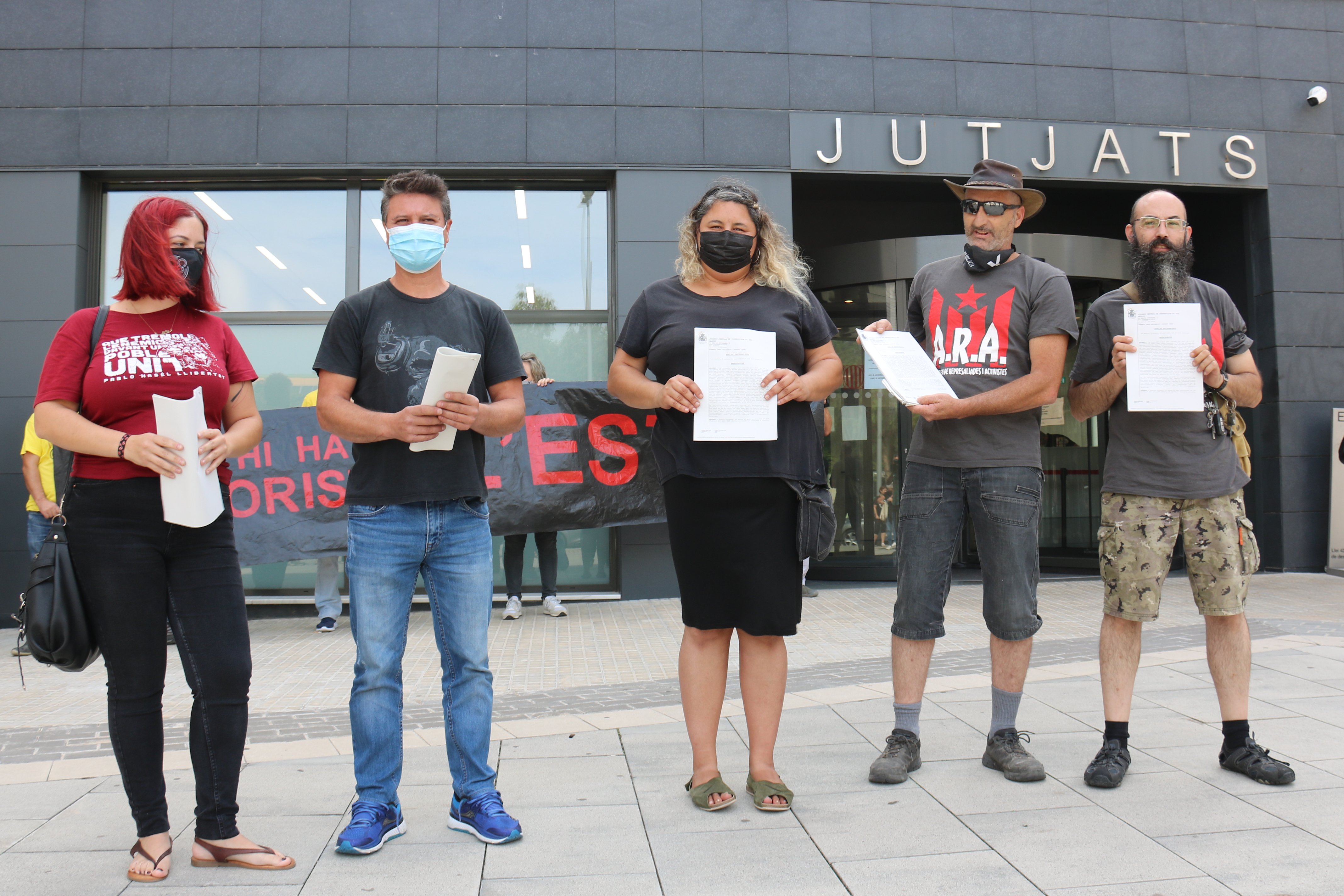No let up. The judge of investigative chamber six of Spain's National Court, Manuel García Castellón, has released the conclusions of the investigation arising from the so-called Operation Judas and has placed twelve Catalan residents, linked to the pro-independence Committees for the Defence of the Republic (CDRs) activism groups, on the verge of a trial, accused of belonging to a terrorist organization and, for several of them, possession of explosive material. The Alerta Solidària legal aid group, which is leading the defence of most of those prosecuted in this highly controversial case, has stated this Friday that with this conclusion, the court is once again "violating their right to a defence", since there is still no solid evidence, and only two weeks ago lawyers were handed material from two parts of the case that had been conducted in secret, which are the origin of the investigation, and which contain enormous amounts of information - in fact, it appears to have been gathered using an illegal, "fishing expedition" approach.
As a result of these secret pieces of the National Audience inquiry, it has been discovered that the Civil Guard monitored the mobile phones of 38 people linked to the CDRs and also around former Catalan president Carles Puigdemont, with regard to the creation of the digital capabilities of the Catalan exile body, the Council for the Republic. Now the public prosecutor's office will have its say on the penalties it wishes to demand.
High prison sentences
In the resolution, judge Manuel García Castellón explains that the investigation of Operation Judas began in December 2018, and led to the arrest of nine people on September 23rd, 2019, six of whom spent up to three months in provisional prison, and were able to leave on payment of bail sums of between 15,000 and 30,000 euros. In 2020, the case was extended to four more people, although they were not held in custody and were able to testify to the Madrid-base National Audience by videoconference from Catalan courts. The judge closed the case against one of the suspects due to health issues, and for this reason, in the end there are 12 people charged.
For eight of them, the judge affirms that there are "indications" that they could be responsible for the crime of belonging to a terrorist organization, punishable by sentences ranging from 6 to 12 years in prison, and the crime of possession, deposit and manufacture of explosive substances, with penalties ranging from 8 to 15 years in prison, while for the other four they are charged only with the crime of belonging to a terrorist group. Given this investigative conclusion, the defence teams of the CDR members are likely to appeal to the court.
Assault on Parliament that didn't happen
In the investigation, the Civil Guard indicated that those prosecuted were part of a group within the CDRs called the Tactical Response Team (ERT), which they described as "a radicalized cell" and, they alleged, planned acts of sabotage in Catalonia as well as being supposedly in contact with political leaders in order to blockade the Catalan Parliament if president Carles Puigdemont returned from exile. Nothing of those things actually happened. The Civil Guard was also authorized by the judge to hack the phones of those under investigation, to place tracking and listening beacons on their vehicles and to follow them personally.
No explosives, either
Upon their arrest, as part of a dramatic 500-officer operation on September 23rd, 2019, the Civil Guard released images of the searches of their homes and confirmed that they had explosives in their possession, which was an incorrect statement. One of them had "precursors" - materials that could have been used in the making of explosive materials - but no actual explosives or device. In addition, one of the CDRs was tried with eight other people for assaulting Mossos agents and for rioting and throwing oil on the road when the political prisoners were being taken from Madrid to Lledoners prison in Catalonia, and all 9 accused in this highway protest were acquitted.

